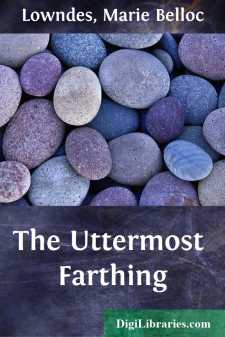Categories
- Antiques & Collectibles 13
- Architecture 36
- Art 48
- Bibles 22
- Biography & Autobiography 813
- Body, Mind & Spirit 142
- Business & Economics 28
- Children's Books 15
- Children's Fiction 12
- Computers 4
- Cooking 94
- Crafts & Hobbies 4
- Drama 346
- Education 46
- Family & Relationships 57
- Fiction 11829
- Games 19
- Gardening 17
- Health & Fitness 34
- History 1377
- House & Home 1
- Humor 147
- Juvenile Fiction 1873
- Juvenile Nonfiction 202
- Language Arts & Disciplines 88
- Law 16
- Literary Collections 686
- Literary Criticism 179
- Mathematics 13
- Medical 41
- Music 40
- Nature 179
- Non-Classifiable 1768
- Performing Arts 7
- Periodicals 1453
- Philosophy 64
- Photography 2
- Poetry 896
- Political Science 203
- Psychology 42
- Reference 154
- Religion 513
- Science 126
- Self-Help 84
- Social Science 81
- Sports & Recreation 34
- Study Aids 3
- Technology & Engineering 59
- Transportation 23
- Travel 463
- True Crime 29
Studies in love and in terror
Description:
Excerpt
PRICE OF ADMIRALTY
"O mort, vieux capitaine, il est temps! levons l'ancre!Ce pays nous ennuie, O mort! Appareillons!"
I
CLAIRE DE WISSANT, wife of Jacques de Wissant, Mayor of Falaise, stood in the morning sunlight, graceful with a proud, instinctive grace of poise and gesture, on a wind-blown path close to the edge of the cliff.
At some little distance to her left rose the sloping, mansard roofs of the Pavillon de Wissant, the charming country house to which her husband had brought her, a seventeen year old bride, ten long years ago.
She was now gazing eagerly out to sea, shielding her grey, heavy-lidded eyes with her right hand. From her left hand hung a steel chain, to which was attached a small key.
A hot haze lay heavily over the great sweep of deep blue waters. It blotted out the low grey line on the horizon which, on the majority of each year's days, reminds the citizens of Falaise how near England is to France.
Jacques de Wissant had rejoiced in the entente cordiale, if only because it brought such a stream of tourists to the old seaport town of which he was now Mayor. But his beautiful wife thought of the English as gallant foes rather than as friends. Was she not great-granddaughter to that admiral who at Trafalgar, when both his legs were shattered by chain-shot, bade his men place him in a barrel of bran that he might go on commanding, in the hour of defeat, to the end?
And yet as Claire stood there, her eyes sweeping the sea for an as yet invisible craft, her heart seemed to beat rhythmically to the last verse of a noble English poem which the governess of her twin daughters had made them recite to her that very morning. How did it run? Aloud she murmured:
"Yet this inconstancy is such,As you too shall adore—"
and then she stopped, her quivering lips refusing to form the two concluding lines.
To Claire de Wissant, that moving cry from a man's soul was not dulled by familiarity, or hackneyed by common usage, and just now it found an intolerably faithful echo in her sad, rebellious heart, intensifying the anguish born of a secret and very bitter renunciation.
With an abrupt, restless movement she turned and walked on till her way along the path was barred by a curious obstacle. This was a small red-brick tower, built within a few feet of the edge of the cliff. It was an ugly blot on the beautiful stretch of down, all the uglier that the bricks and tiles had not yet had time to lose their hardness of line and colour in the salt wind.
On the cliff side, the small circular building, open to wind, sky and sea, formed the unnatural apex of a natural stairway which led steeply, almost vertically, down to a deep land-locked cove below. The irregular steps carved by nature out of the chalk had been strengthened, and a rough protection added by means of knotted ropes fixed on either side of the dangerous descent.
In the days when the steps had started sheer from a cleft in the cliff path, Jacques de Wissant had never used this way of reaching a spot which till last year had been his property, and his favourite bathing-place; and he had also, in those same quiet days which now seemed so long ago, forbidden his daughters to use that giddy way. But Claire was a fearless woman; and she had always preferred the dangerous, ladder-like stairs which seemed, when gazed at from below, to hang 'twixt sky and sea.
Now, however, she rarely availed herself of the right retained by her husband of using one of the two keys which unlocked the door set in the new brick tower, for the cove—only by courtesy could it be called a bay—had been chosen, owing to its peculiar position, naturally remote and yet close to a great maritime port, to be the quarters of the Northern Submarine Flotilla.
Jacques de Wissant—and it was perhaps the only time in their joint life that his wife had entirely understood and sympathized with any action of her husband's—had refused the compensation his Government had offered him; more, in his cold, silent way, he had shown himself a patriot in a sense comparatively few modern men have the courage to be, namely, in that which affected both his personal comfort and his purse.
...







